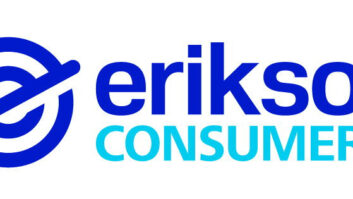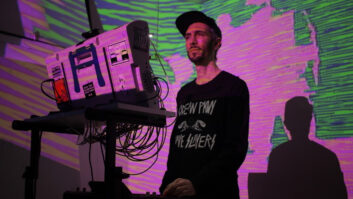The hi-fi industry needs some help in the compressed-music era, and a group of legendary Grammy-winning music producers wants to lend a hand.
The group, called the Music Engineering and Technology Alliance (META), plans to consult with manufacturers of consumer and pro audio equipment and with audio codec developers such as Microsoft to help them develop products and technologies that deliver the state-of-the-art in high-resolution two-channel and multichannel music, said producer Ed Cherney, one of the group’s seven founders.
The group will also help educate young music engineers, music makers, music lovers and CE salespeople who grew up on an MP3 diet about the benefits of high-resolution audio, he said.
The group’s founders “are in studios making music using the latest and greatest codecs and high-resolution tools, and then we hear it via MP3,” he explained. The group’s goal, he continued, is to ensure that consumers “hear music the way it’s coming out of the studio.”
Besides Cherney, META’s founders include Phil Ramone, Elliot Scheiner, Frank Filipetti, Al Schmitt, George Massenburg, Chuch Ainlay and META’s president Rory Kaplan. Cherney has produced such musicians as Bonnie Raitt and the Rolling Stones.
The founders organized META as a nonprofit corporation that has obtained “significant sponsorship commitments already on the table,” said acting CEO Bill Neighbors, formerly DTS’ COO. Later on, the group will use certification income to generate ongoing revenues.
The group’s goal is “to support high-resolution audio,” Cherney said. “People, especially young people, haven’t had the opportunity to experience what full-range high-resolution audio is all about.”
The founders “lived through the golden age of audio,” but “concern for quality and resolution is not going on right now.”
The compressed-music phenomenon “is one of the great things to happen to music,” he said. “It’s a quick and easy way to expose people to any type of music.” But, he noted, “there are still other great ways to enjoy music.”
To assist suppliers and technology companies in delivering the best possible sound quality, the group will develop “standardized processes to evaluate compressed and uncompressed technologies” and help coach companies in making improvements, Cherney said.
The initiative includes a certification program that will qualify pro and consumer products to carry the META logo to help differentiate products, said Neighbors. The group said it will also facilitate R&D, standardization, and cross-platform interoperability.
Initially, the group will focus on packaged-media playback and authoring products and technologies, including DVD-Audio and other two- and multichannel high-resolution formats. Though there will “be levels at which we won’t play,” Neighbors said, “there will come a time when the nontraditional-media bar [lossy compressed music] can be raised if we get in early enough.” The group “wants to voice our opinions and influence standards committees throughout the world,” as founding members already did in influencing the selection of multichannel audio formats for Blu-ray discs, he said.
The group has met with Microsoft, which “is really open” to the initiative, Cherney added. Microsoft already offers a multichannel high-resolution codec that sounds “pretty darn good,” but improvements are possible, particularly in making it easier for professionals to use, he said.
As for CE suppliers, META is “interested in partnering with manufacturers who are putting out good machines and helping them promote the stuff,” Cherney said. “Not a lot” of CE suppliers, however, “are coming out with great new high-definition audio products. They’ve been low-key. We hope to educate people for them” to encourage manufacturers to produce more hi-fi equipment, he continued.
One way to do that is to promote high-resolution audio to consumers via the press and road shows at retail stores and colleges, and perform retail sales training, he said.
Just as important, the group wants to stage educational seminars nationwide at music engineering schools at such institutions as Berkeley and USC. Eventually, seminars at high schools will be on the agenda, he said.
Said Neighbors, “There are a lot of 13- to 18-year-olds who don’t realize what they’re missing.” In the near term, he added, “promotion and education are probably more important.













